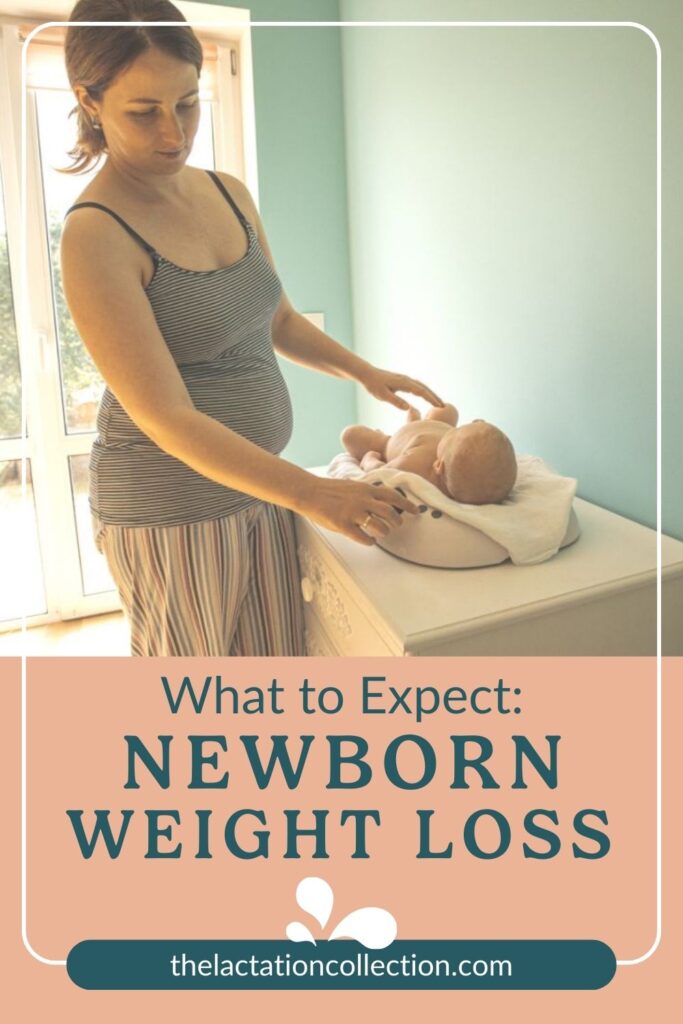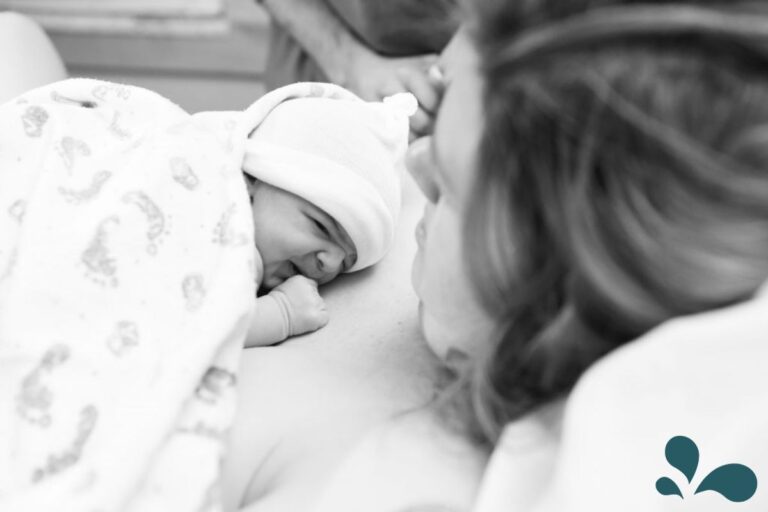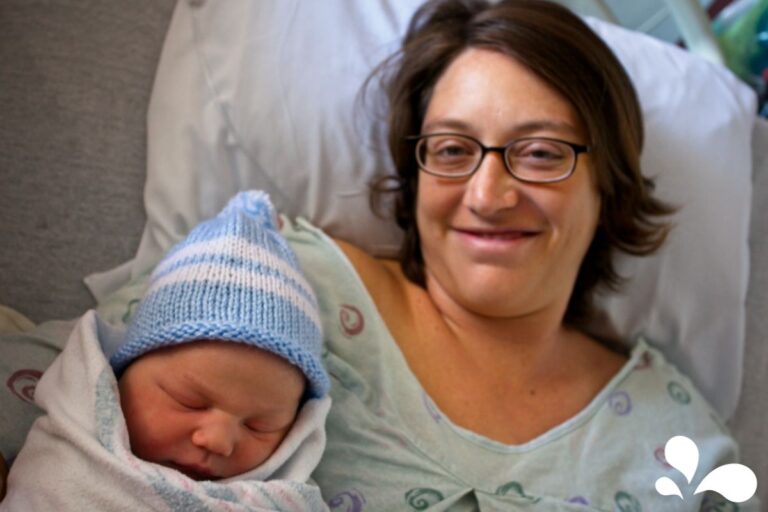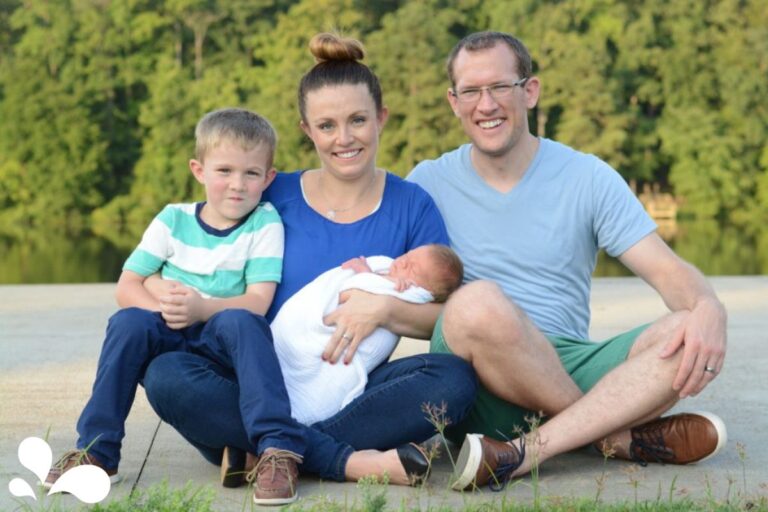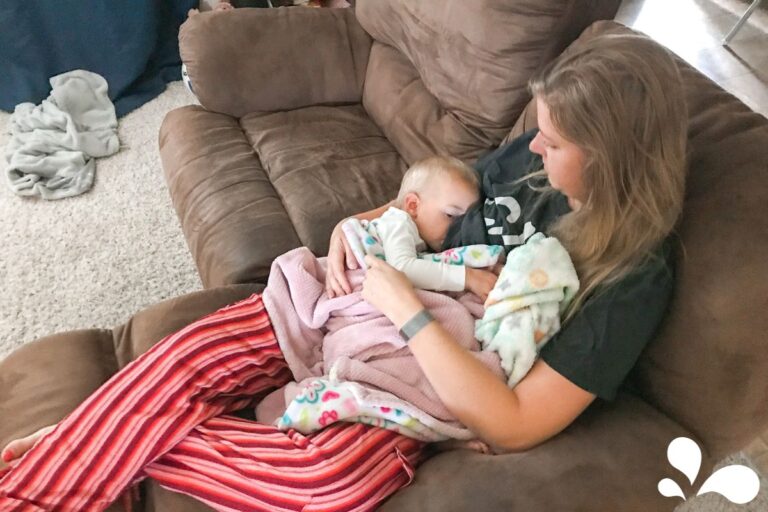Q: How much weight do newborns lose?
A: In the first two to three days, it is normal for baby to lose 7-12% of their birth weight.
What should I expect when it comes to your newborn’s weight? What is normal? What should I watch for?
These are questions you may be thinking of as you get closer to having your baby. Plus, seeing the scale drop for your baby when your baby already feels so tiny and fragile can feel scary! This post will help answer your newborn weight loss questions and help you know what to expect with newborn weight loss.
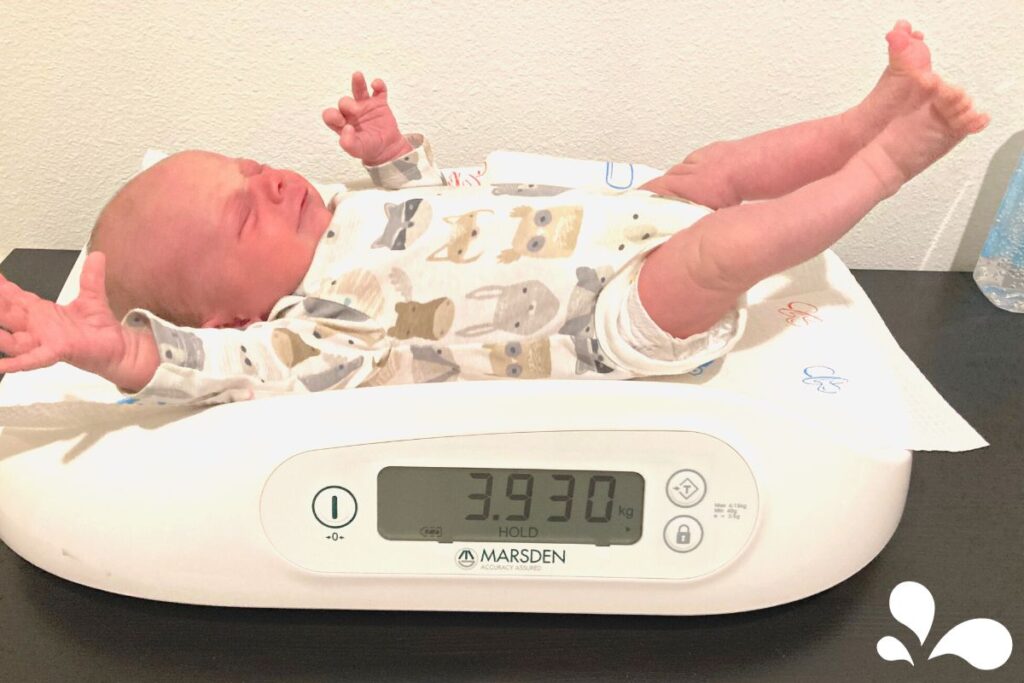
What to Expect with Your Newborn’s Weight Loss
After baby is born, they are weighed. In a hospital birth scenario, the hospital checks baby’s weight 1-2 more times before discharge. If you have a home or birth center birth, experts recommend taking baby to see their pediatrician when they are two days old to check their weight.
In those first two to three days, it is normal for baby to lose 7-10% of their birth weight. Do not panic. Usually, by day five, baby will have stopped losing weight and may even be increasing in weight.
After delivery baby has excess fluids that they lose, especially if you had IV fluids during labor and delivery. The extra fluid is a large portion of the “weight” they lose. Baby’s born via cesarean section tend to lose a higher percentage–around 10-12% because more IV fluids are given. Often if you delay weighing a cesarean section baby or count their weight at 24 hours after delivery as their “birth weight,” they tend to have the same percentage of weight loss as babies born vaginally.
Gaining the Weight Back
We want baby to be back to their “birth weight” by two weeks old when they go in for their well-check. If weight has not returned to birth weight at that point, experts recommend working with your pediatrician and an IBCLC to create and implement a plan to increase baby’s weight gain.
Blog post: Will I produce enough breastmilk for my baby?
In the meantime, the best thing you can do for baby is to feed baby on demand and be patient. Newborns can take around forty minutes for a single feeding. Your breastmilk adapts to baby’s needs. Your colostrum (the initial food your body produces) has high protein and disease-fighting factors. Once that transitions out, your mature milk will be anywhere from 3-5% fat. These phases will help baby gain weight. Just keep breastfeeding. We know that the first few weeks of breastfeeding are challenging. We recommend checking out the Newborn Survival Guide: Baby’s First Two Weeks to best educate yourself on what to expect and how to help yourself. If you get concerned, reach out to your IBCLC.
